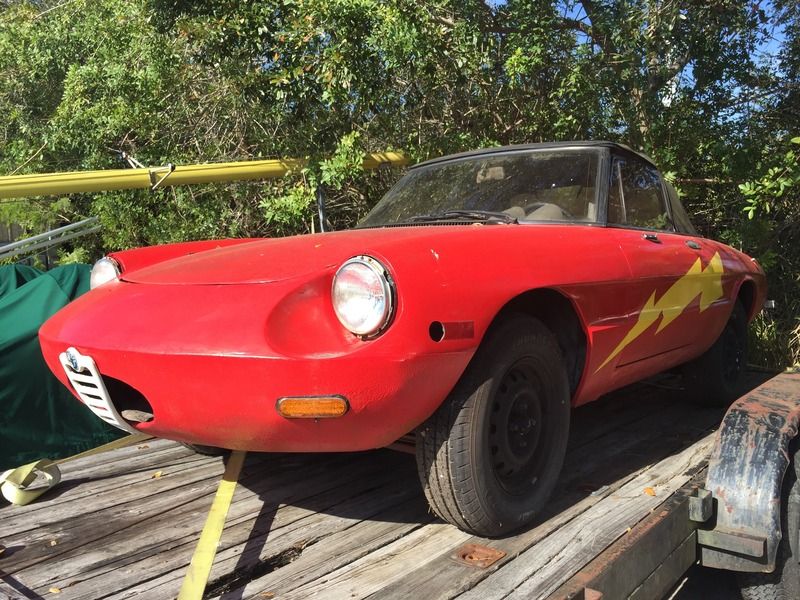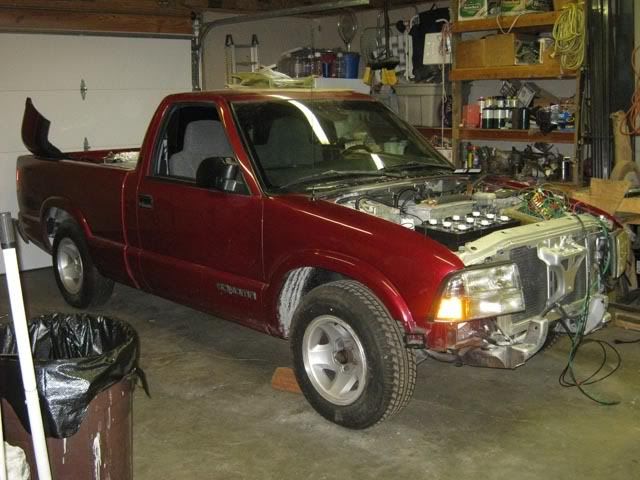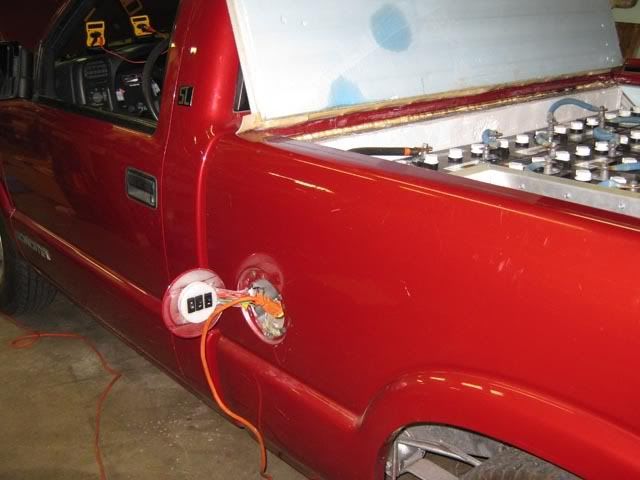
I think that we are in a transitional phase now where electric vehicles are going from the realm of the obscure (DIY lead-acid with a range of 40 miles) and the exotic (Tesla and such) to a place where more mainstream grassroots enthusiasts are considering them for builds. Relatively cheap and lightweight battery packs are becoming available and old Leafs and such are becoming donor fodder for not just batteries, but controllers and motors.
When a few years ago I last seriously considered an electric build, the economics just didn't come together for me. Good controllers like the Zilla were pretty damn expensive and the cheaper ones like Curtis filled message boards with stories of failures, high noise levels and such. It could easily cost well into 5 figures for a good Lipo battery setup, et cetera, et cetera.
So GRM, how about some tech for those of us who are considering this direction? What are the best routes to performance without breaking the bank? What practices need to be followed so that we don't fry ourselves? I remember that guy in Portland who does the electric dragsters saying that every serious builder has had hair-standing-on-end moments, fires or some sort of scary E36 M3. The same could be said for ICE builders, but I take a certain confidence in familiarity, and the fact that you can see a gas leak, whereas a short circuit could be a heck of a nasty surprise.
Perhaps those on this board who have underaken electric builds could step forward and say a few words?
My family has three EVs right now, so this topic definitely intrigues me.
Used Leafs are silly cheap, and come packed with cool tech... but every system is interlaced with the others. You can strip the car down to the battery pack and the traction motor but good luck re-purposing anything else--you'd have to reverse engineer the entire car.
The BMW i3 seems like an amazing platform for modding with its aluminum RWD roller skate and carbon-composite cabin, but modifying one is hamstrung by the same hurdles. I'm not sure how you would make a hot version without having to also alter countless lines of code.

Robbie
UberDork
5/29/17 3:41 p.m.
I think Elon musk started by drag racing an electric car. And when he had to drive 2000 miles or so in it he made a pusher trailer out of a VW beetle back half.
So at least the hobby can be profitable!
I have a motor and ac controller sitting in my garage but do not have a plan for them currently.
I'd be interested to read such an article. Here's some brainstorming I've been doing on building a performance EV.
This video intrigued me to no end.
Starting with something like a Leaf the easiest method would probably be to ghettocet it and be careful not to disturb any of the CANBUS crap in the process.
I would Relocate everything to be RWD. I'm not sure how "engine placement" works on anything EV... it's not like you have a massive motor and trans over any driven wheels. So, I guess, locate as much weight to the passenger seat to offset driver. And keep as much weight off the nose after doing the craziest wiring party ever to keep the motor in back. Or hell, add another motor and make it AWD.

Robbie
UberDork
5/30/17 8:20 a.m.
ebonyandivory wrote:
This video intrigued me to no end.
3800 lb race trim e36 m3 
and I know that HP is measured based on engine RPM - but shouldn't it really be based on roller RPM since a motor that spins slowly will always have "low" HP even though it has capacity to do a lot of work?
Robbie wrote:
I have a motor and ac controller sitting in my garage but do not have a plan for them currently.
I have an idea for that! I looked into how to make an AC challenge car but was having difficultly finding a controller for the right price.
In reply to Robbie:
Do I have the car for you. I picked up a '78 Alfa last year that had been converted to electric. I bought it without motor/batteries/controller but transmission and everything else is there. VERY challenge budget friendly.


Robbie
UberDork
5/30/17 1:20 p.m.
hobiercr and singleslammer
You guys are not helping! Unfortunately unless I find a way to FMV the motor and controller they are not budget friendly.
Which may not be too hard, since I bought them in about 2007-8 and I think the EV company is out of business by now...
NLA means that they aren't supported and are therefore only worth their weight in mixed scrap  . That would be like $12 right now.
. That would be like $12 right now.
Robbie wrote:
ebonyandivory wrote:
This video intrigued me to no end.
3800 lb race trim e36 m3  and I know that HP is measured based on engine RPM - but shouldn't it really be based on roller RPM since a motor that spins slowly will always have "low" HP even though it has capacity to do a lot of work?
and I know that HP is measured based on engine RPM - but shouldn't it really be based on roller RPM since a motor that spins slowly will always have "low" HP even though it has capacity to do a lot of work?
Uh, 850lb-ft at the wheels isn't that much. With a normal range 3.5:1 final drive, and direct 4th gear, that's only 242 lb-ft coming out of the trans into the final drive.
And that explains why it's only 324 hp at that low rotation speed.
I appreciate that guy and his enthusiasm, but he needs to know some perspective of what the numbers really mean and how they relate to normal cars.
I'm sure it's fun having a 325hp engine in a BMW, though.
But it's not Super Duty torque to the wheels.
In reply to alfadriver:
When you put it like that I'm confused how that thing is breaking powerglides, it doesn't take much money to make one of those things bulletproof behind anything remotely streetable.
I have a friend who build his own ev. He bought lithium batteries from China. He has been driving it 40 miles to work now for a few years.
Lots of info here
http://store.evtv.me
BrokenYugo wrote:
In reply to alfadriver:
When you put it like that I'm confused how that thing is breaking powerglides, it doesn't take much money to make one of those things bulletproof behind anything remotely streetable.
Me, neither- I'm not sure how they have that set up- but my gut would tell me that it makes a LOT more torque at zero RPM, and many first/second gear sets have torque limits on them- lower than what the engine can put out. So peak torque in first gear would probably break it. The part of the point of the trans/diff is to multiply the torque- which many electric motors don't need to do.
Also- he quoted peak torque at peak power, so that matters, too.

GVX19
Reader
5/31/17 7:25 a.m.
It may be drive line shock. 500hp at 1500 rpm is stressing what ATF can do to keep the gears from cutting in to each other.
I know that its very possible to DIY most of an EV, AS EVIDENCED BY THIS BUILD FROM 2012. This college student built a EV Sonoma in his garage using a large DC motor adapted to drive the existing 5speed manual gearbox, powered by golf cart batteries. That combo is (was?) good enough for a 40min surface road commute to work or class. Nothing very long distance, and asking for more than 65mph was pushing it, so freeway use was limited.
IIRC, it was a graduate school project, but I cant remember for certain. Hes not very active anymore because I think hes working on his doctorate, but Id imagine that with some of the technological advancements in portable electric power, specifically of the automotive variety, in the last 5 years, that his range and power potential are probably far greater today on the same budget.

Here's an active forum with plenty to read through:
http://www.diyelectriccar.com/forums/forumdisplay.php/all-ev-conversions-and-builds-2.html
This is something where safety needs to be on your mind from the beginning. Your personal safety while building the car. Your parking lot neighbor's safety when your car is charging next to theirs. The first responder's safety when they show up to your broken flaming car on the side of the road.

Jaynen
SuperDork
5/31/17 9:08 a.m.
The EV west car came to autocross a couple times, it was undrivable. It would instantly spin the tires and go into a drift all the time
^A local guy with an electric Westfield with the equivalent of about 800hp has the same problem. I've beat him with my Corolla. He wins easily in drag racing though. It launches like a F1 car.
Controlling power will become more difficult with EVs, because the power is instantaneous and practically independent of RPM. I think you'll see people using power smoothing algorithms to make the power controllable and save drivetrains from destruction.
In reply to GameboyRMH:
I disagree- I think controlling torque and power in EV's will be light years easier. There's one major input- how much electricity do you give the engine. Whereas in cars- it's a balance between mostly air and spark- which both have different time constants. And it's fair on most of our levels to add fuel, too- which has a third time constant to that torque equation.
I agree with you - I meant controlling power from the driver's perspective will be harder. From a vehicle electronics/programming perspective it will be easier, and more commonly done to fix the problem of it being hard for the driver.
I still think it's the same thing- the driver has to re-learn what the right food does. Not that much different than if you had a long lag turbo, or a blower V8, compared to a basic N/A motor.
But a better solution, find a way to integrate a very basic traction control system, and it will rock.

Jaynen
SuperDork
5/31/17 3:31 p.m.
A lot of current racing organizations prohibit any sort of aftermarket traction control however. Probably for cost reasons. I think most likely the "throttle mapping" was not easy to use and the fact torque is always available is it every possible with an electric motor to have SPEED but not TORQUE?
In the RC world you have these controls like punch control etc










































